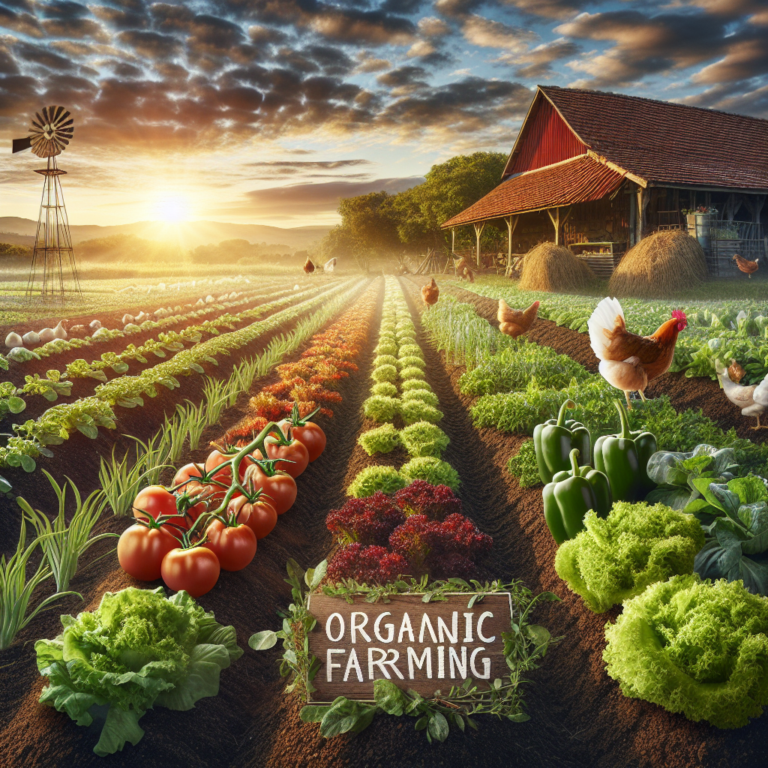Organic farming has been gaining popularity in recent years as more and more people become aware of the potential health risks associated with conventional farming practices. One of the primary concerns surrounding conventional agriculture is the use of pesticides, which have been linked to a variety of health issues including cancer, birth defects, and respiratory problems. Organic farming offers a sustainable alternative that can help protect both human health and the environment.
Organic farming is a method of agriculture that relies on natural practices to improve soil fertility, control pests, and manage weeds. Instead of using synthetic pesticides and fertilizers, organic farmers use crop rotation, composting, and biological pest control methods to maintain healthy crops and soil. By avoiding the use of harmful chemicals, organic farmers are able to produce food that is free from pesticide residues and other harmful contaminants.
One of the key advantages of organic farming is its ability to reduce exposure to pesticides, which have been linked to a number of health risks. Studies have shown that people who consume organic food have lower levels of pesticide residues in their bodies compared to those who eat conventionally grown food. This is especially important for children, who are particularly vulnerable to the harmful effects of pesticides due to their developing bodies.
In addition to reducing pesticide exposure, organic farming also offers other health benefits. Organic food is often higher in nutrients such as vitamins, minerals, and antioxidants, which can help boost the immune system and protect against chronic diseases. Organic farming practices also help promote biodiversity and support healthy ecosystems, which can have a positive impact on overall environmental health.
While organic farming may require more labor and resources compared to conventional farming, the long-term benefits far outweigh the costs. By choosing organic food, consumers can support sustainable agriculture practices that protect both human health and the environment. Additionally, organic farming can help reduce the reliance on synthetic chemicals and promote a more holistic approach to food production.
In conclusion, organic farming offers a sustainable solution to common pesticide-related health risks associated with conventional agriculture. By choosing organic food, consumers can support farming practices that prioritize human health, environmental sustainability, and biodiversity. With increasing awareness of the benefits of organic farming, we can work towards a healthier food system for both current and future generations.










